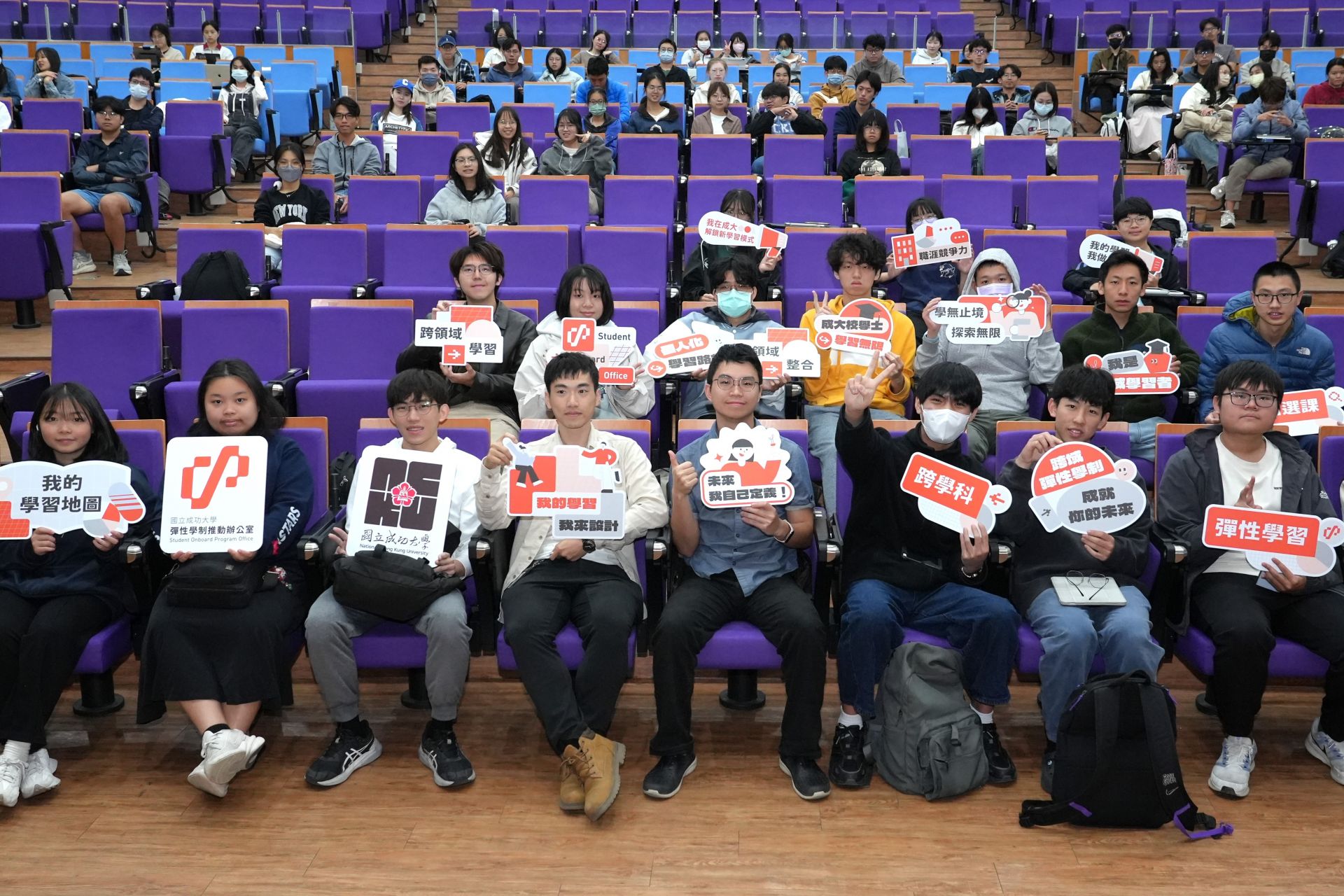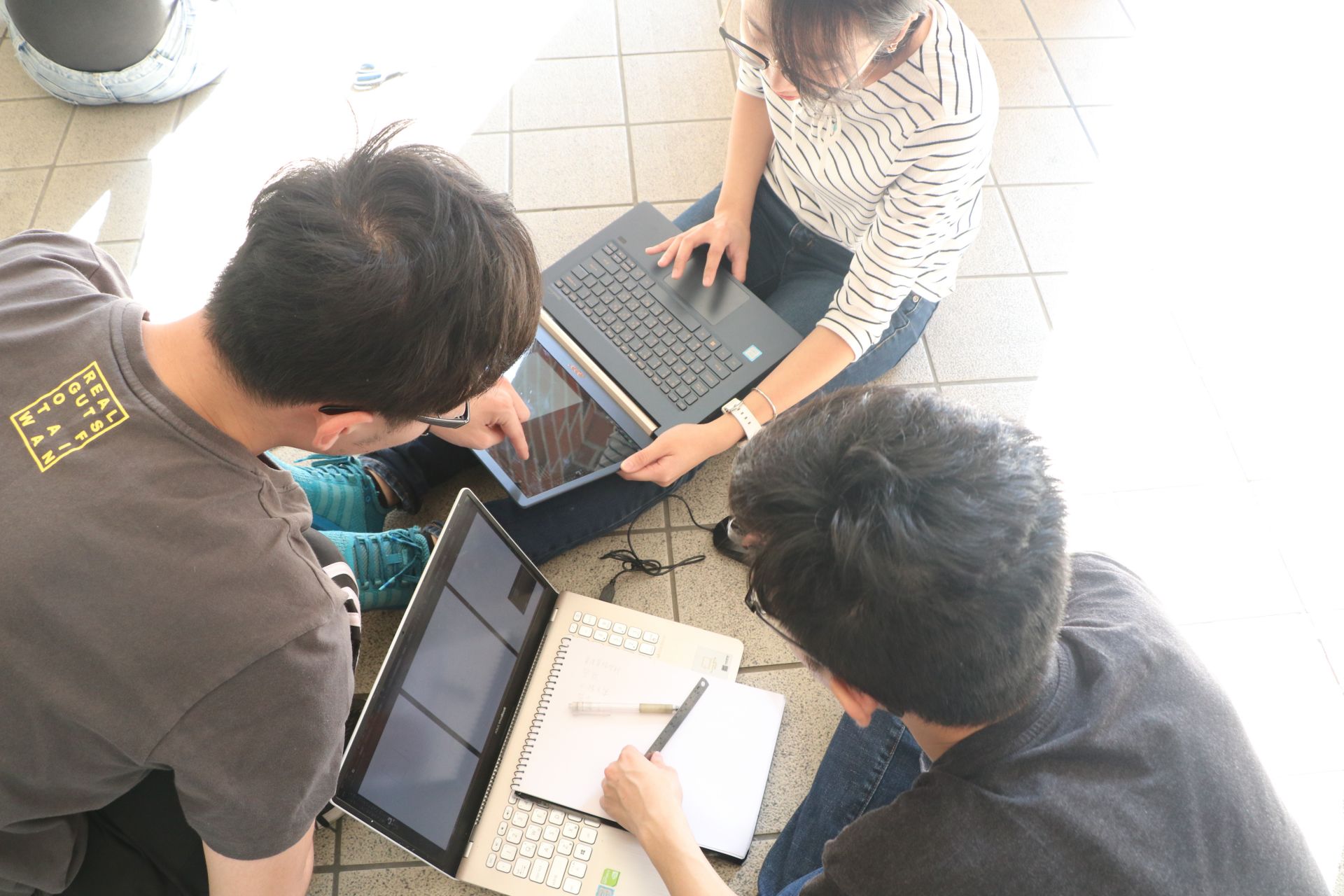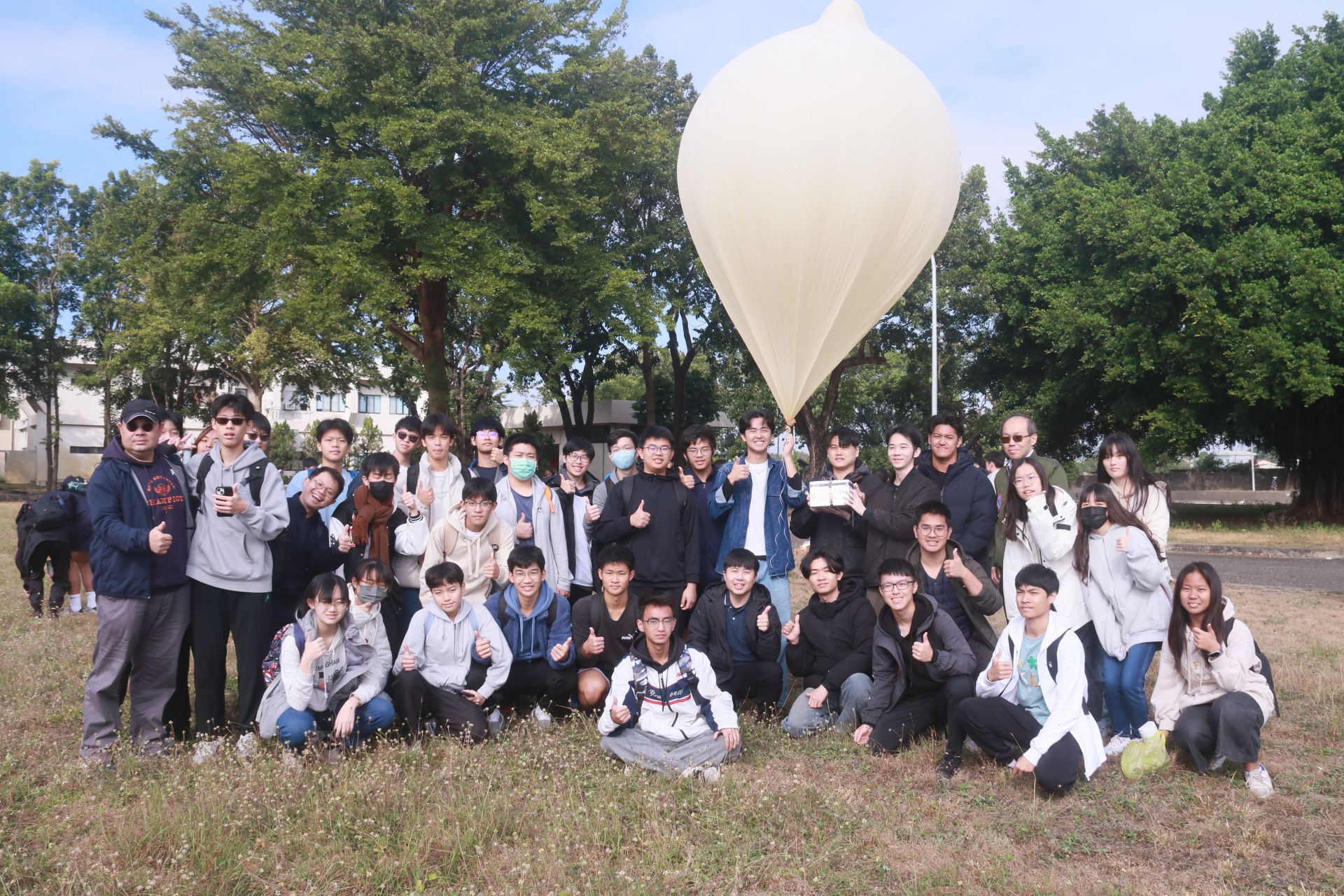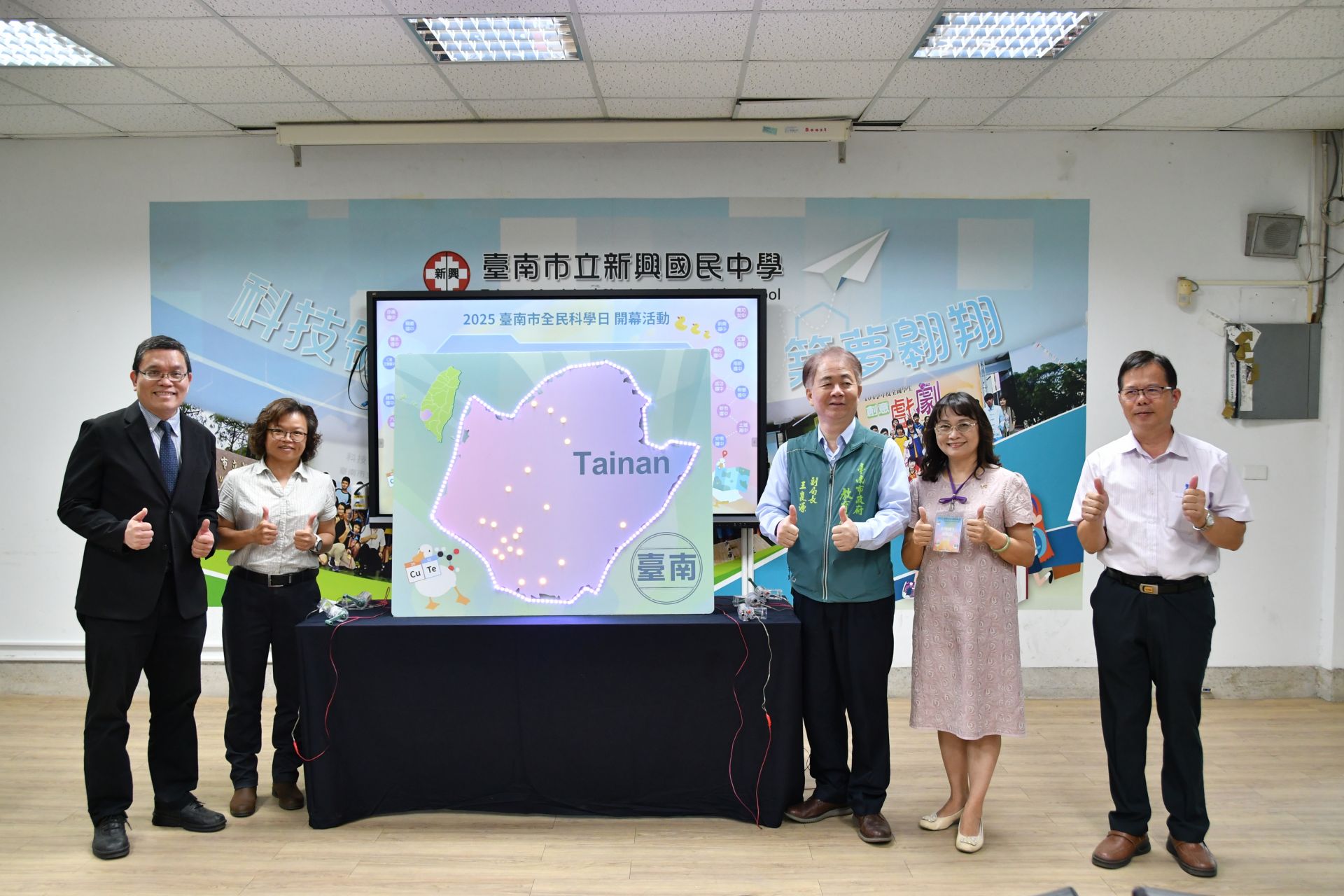SDG4
NCKU Launches "Interdisciplinary Flexible Curriculum" to Promote Customized Autonomous Learning Pathways
National Cheng Kung University (NCKU) officially launched the "Interdisciplinary Flexible Curriculum" system in the second semester of the 113th academic year. This initiative aims to break down traditional academic boundaries, providing students with flexible and autonomous learning pathways to cultivate innovative talents with interdisciplinary thinking and practical abilities. To help students gain a deeper understanding of the system's planning and features, the Office of Academic Affairs held a "Interdisciplinary Flexible Curriculum Orientation" on March 31, introducing the project vision, implementation methods, and responding to on-site questions in real time.
During the orientation, a detailed explanation was provided regarding the implementation content of the Interdisciplinary Flexible Curriculum, the application process, and personalized learning pathway planning methods. This allowed participants to gain a clearer understanding of the practical methods of interdisciplinary learning and the potential for future development. The core of NCKU's "Interdisciplinary Flexible Curriculum" is the "Customized 128 Credits" concept. To support this, the university established the "Flexible Interdisciplinary Learning Committee" to provide direction and feasibility reviews for each student's individualized learning pathway, ensuring that students can plan the most suitable learning programs within a diverse and flexible learning environment.
Currently, NCKU has 10 colleges and 47 departments that have long promoted student autonomy and interdisciplinary learning, including modularized programs such as the "Interdisciplinary Credit Program," "Domain Expertise Micro Program," "Minor," and "Double Major." The new Interdisciplinary Flexible Curriculum further integrates existing resources, dividing courses into 7 major modules. Students can flexibly adjust their learning paths among different modules based on personal interests and career goals, effectively breaking the traditional boundaries of academic disciplines and departments.
The degree planning for the Interdisciplinary Flexible Curriculum offers 3 pathways for students to choose from:
1. Dual Bachelor's Degree Mode: Students maintain their original department studies while adding a Domain Expertise Micro Program to graduate with dual bachelor's degrees.
2. University Bachelor's Degree Mode: Students acquire an interdisciplinary university bachelor's degree through multi-domain coursework with a focus on domain expertise.
3. Specialized Bachelor's Degree Mode: Students can independently plan personalized interdisciplinary learning modules to graduate with a specialized bachelor's degree.
Regarding the application process, the "Interdisciplinary Flexible Curriculum" is open to all students at the university, with applications accepted from May to June and November to December each year. Students are required to submit a "Learning Application Proposal," which, after preliminary review by the "Flexible Curriculum Support Office" and final review by the "Flexible Interdisciplinary Learning Committee," allows them to embark on their interdisciplinary learning journey.
Dr. Chi-Jung Huang, co-host of the Promotion Office, stated that the Interdisciplinary Flexible Curriculum not only provides students with more diverse learning freedom but also aims to nurture outstanding talents with flexibility, adaptability, and interdisciplinary integration abilities. Through this orientation, it is hoped that more students will be encouraged to explore the limitless possibilities of interdisciplinary learning and actively prepare for future development.
During the orientation, a detailed explanation was provided regarding the implementation content of the Interdisciplinary Flexible Curriculum, the application process, and personalized learning pathway planning methods. This allowed participants to gain a clearer understanding of the practical methods of interdisciplinary learning and the potential for future development. The core of NCKU's "Interdisciplinary Flexible Curriculum" is the "Customized 128 Credits" concept. To support this, the university established the "Flexible Interdisciplinary Learning Committee" to provide direction and feasibility reviews for each student's individualized learning pathway, ensuring that students can plan the most suitable learning programs within a diverse and flexible learning environment.
Currently, NCKU has 10 colleges and 47 departments that have long promoted student autonomy and interdisciplinary learning, including modularized programs such as the "Interdisciplinary Credit Program," "Domain Expertise Micro Program," "Minor," and "Double Major." The new Interdisciplinary Flexible Curriculum further integrates existing resources, dividing courses into 7 major modules. Students can flexibly adjust their learning paths among different modules based on personal interests and career goals, effectively breaking the traditional boundaries of academic disciplines and departments.
The degree planning for the Interdisciplinary Flexible Curriculum offers 3 pathways for students to choose from:
1. Dual Bachelor's Degree Mode: Students maintain their original department studies while adding a Domain Expertise Micro Program to graduate with dual bachelor's degrees.
2. University Bachelor's Degree Mode: Students acquire an interdisciplinary university bachelor's degree through multi-domain coursework with a focus on domain expertise.
3. Specialized Bachelor's Degree Mode: Students can independently plan personalized interdisciplinary learning modules to graduate with a specialized bachelor's degree.
Regarding the application process, the "Interdisciplinary Flexible Curriculum" is open to all students at the university, with applications accepted from May to June and November to December each year. Students are required to submit a "Learning Application Proposal," which, after preliminary review by the "Flexible Curriculum Support Office" and final review by the "Flexible Interdisciplinary Learning Committee," allows them to embark on their interdisciplinary learning journey.
Dr. Chi-Jung Huang, co-host of the Promotion Office, stated that the Interdisciplinary Flexible Curriculum not only provides students with more diverse learning freedom but also aims to nurture outstanding talents with flexibility, adaptability, and interdisciplinary integration abilities. Through this orientation, it is hoped that more students will be encouraged to explore the limitless possibilities of interdisciplinary learning and actively prepare for future development.

The "Interdisciplinary Flexible Curriculum Orientation" introduces the project vision and implementation methods

The "Interdisciplinary Flexible Curriculum" aims to break traditional academic boundaries

SDG4Guardian of Taiwanese Literature, Distinguished Alumnus Liang-Ze Zhang, Receives Tainan Cultural Award.
View more
SDG4NCKU Institute of Space Systems Engineering Launches Exciting Weather Balloon Mission with Interdisciplinary Collaboration
View more



















